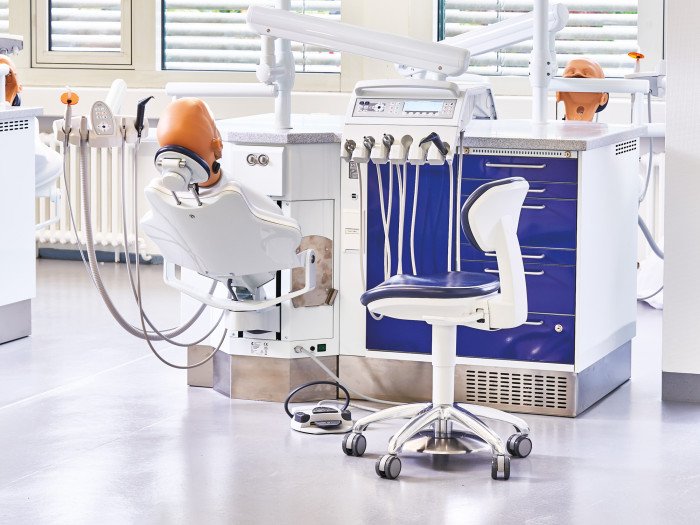Dental Equipment Training: Mastering the Tools for Effective Dental Care

Dental equipment training is an essential part of dental education and practice. Whether you are a dentist, hygienist, dental assistant, or technician, having proper training ensures safe, efficient, and high-quality dental care. This article dives into why dental equipment training matters, what’s typically included, and how to find the right program to advance your dental career.
Why Is Dental Equipment Training Important?
Proper training on dental tools and equipment is crucial for several reasons:
-
Safety: Reduces the risk of injury to both patients and dental staff.
-
Efficiency: Speeds up procedures through better handling of tools.
-
Compliance: Meets regulatory standards such as OSHA and CDC guidelines.
-
Longevity: Helps maintain equipment properly, reducing the risk of malfunction or wear.
-
Confidence: Increases comfort with advanced technology like intraoral scanners, digital X-rays, and CAD/CAM systems.
Who Needs Dental Equipment Training?
Training is not just for students — it benefits anyone working in a dental practice:
-
Dental Assistants: Learn how to set up and sterilize tools, assist during procedures, and manage dental chairs and suction systems.
-
Dental Hygienists: Get hands-on with ultrasonic scalers, polishing tools, and digital X-rays.
-
Dentists: Stay current with new technologies, including laser dentistry and 3D imaging systems.
-
Dental Technicians: Operate milling machines, 3D printers, and lab tools efficiently.
Key Components of Dental Equipment Training
A well-rounded training program typically includes:
1. Basic Equipment Handling
Learn how to safely use and maintain handpieces, autoclaves, curing lights, and ultrasonic cleaners.
2. Digital Dentistry Tools
Training on digital X-rays, intraoral cameras, and imaging software.
3. Sterilization and Infection Control
Understand how to clean, disinfect, and sterilize instruments per health regulations.
4. Advanced Equipment Use
Hands-on training with laser devices, CAD/CAM units, 3D printers, and endodontic machines.
5. Maintenance and Troubleshooting
Prevent downtime by learning how to care for and fix minor issues with dental tools.
In-Person vs. Online Dental Equipment Training
|
Training Type |
Pros |
Cons |
|
In-Person |
Real-time practice, live feedback, direct access to equipment |
May be costly or limited by location |
|
Online |
Flexible scheduling, affordable, accessible from anywhere |
May lack hands-on experience |
Many programs now offer hybrid models, combining online theory with in-person labs.
Top Providers of Dental Equipment Training
Looking for a trusted course? Here are some reputable options:
-
DALE Foundation – Offers certified dental assistant training, including equipment handling.
-
Penn Foster Career School – Self-paced online programs with interactive tools.
-
Local Community Colleges – Often provide affordable, hands-on dental technology courses.
-
Manufacturer Workshops – Brands like Dentsply Sirona, KaVo, and Planmeca offer specialized equipment training.
Tips for Choosing the Right Dental Equipment Training Program
-
Check for accreditation and certifications.
-
Ensure access to updated dental equipment.
-
Look for flexible schedules if you’re working full-time.
-
Read student reviews and program outcomes.
-
Consider programs that include CPR and OSHA certification as bonuses.
Conclusion
Investing in dental equipment training is essential for any dental professional aiming to provide top-tier care. With the right knowledge and hands-on experience, you’ll boost your confidence, comply with regulations, and keep your dental practice running smoothly. Whether you're just starting your career or looking to upgrade your skills, proper training is a step you can’t afford to skip.
FAQs about Dental Equipment Training
Q1: How long does dental equipment training take?
A: Depending on the program, it can range from a few weeks (certificates) to several months (diplomas).
Q2: Is online dental equipment training effective?
A: Yes, if it includes interactive modules and hands-on labs or virtual simulations.
Q3: Do I need prior experience for dental equipment training?
A: Some basic programs require no prior experience, while advanced ones may need a dental background.
Q4: Will this help with job placement?
A: Many certified programs offer job assistance or internships with dental clinics and labs.
What's Your Reaction?
















.jpg)